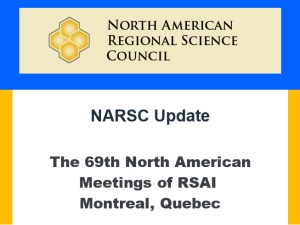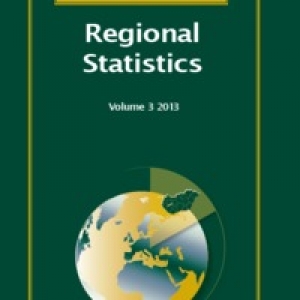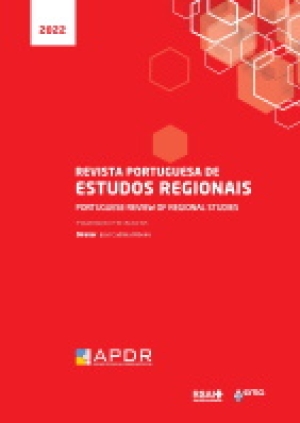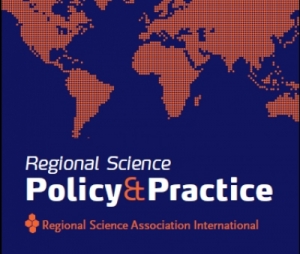RSAI Young Researchers Prize
Elisabete Martins
Winner of 2022 RSAI Dissertation Award
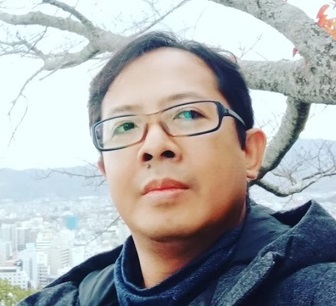 The selection committee for the RSAI Best Dissertation award has unanimously agreed to declare the PhD thesis of I Gede Nyoman Mindra Jaya entitled ‘Bayesian Spatiotemporal Modeling and Mapping of Infectious Disease: Methodology and Application to Dengue disease in Bandung and COVID-19 in West Java, Indonesia’ as winner of the 2022 RSAI Best Dissertation Award.
The selection committee for the RSAI Best Dissertation award has unanimously agreed to declare the PhD thesis of I Gede Nyoman Mindra Jaya entitled ‘Bayesian Spatiotemporal Modeling and Mapping of Infectious Disease: Methodology and Application to Dengue disease in Bandung and COVID-19 in West Java, Indonesia’ as winner of the 2022 RSAI Best Dissertation Award.
This thesis has already been published in the form of four academic peer-reviewed papers in the Journal of Regional Science (2021), Geographical Analysis (2021) and the Journal of Geographical Systems (2020 and 2022). It was also unanimously awarded the cum laude (honours) distinction (for outstanding ability to conduct independent research) by the assessment and review committee (comprising Professors P. McCann, R. Bivand, A. Anshory Yusuf,J. LeSage, M. Fischer) as well as the Tiebout Price of the Western Regional Science Association in 2019.
The RSAI congratulates Dr. Jaya and his supervisors, Prof. L.J.G. van Wissen and Prof. H. Folmer (Groningen University).
NARSC Nominations and Hotel Reservations
|
|||||||||||||||||||||||||||||||||||||||||||||
|
ERSA Monthly E-news - September 2022
|
Open rank tenured/tenure track position, Urban Land/Housing Economics in Planning at UC Berkeley
The Department of City and Regional Planning at the UC Berkeley is seeking applications for an open rank (Assistant, Associate, or Full Professor) faculty position in Urban Land/Housing Economics with an expected start date of July 1, 2023.
The successful candidate must have the vision and drive to chart new intellectual territory, be committed to developing and/or participating in initiatives and multidisciplinary collaborations that expand the reach and impact of their research, conduct externally-funded research, contribute to the department's efforts to promote diversity and inclusion in higher education, and demonstrate a strong commitment to excellence in teaching, service and research.
To apply go https://aprecruit.berkeley.edu/JPF03622.
Please see attached for further details.
RSAI-BIS Early Career Colloquium - 3-4 November 2022
Dear all,
Our popular Early Career Colloquium is returning as an online event, taking place on 3-4 November 2022. This is a great opportunity for PhD students and early career researchers within 3 years of their PhD to present and discuss their work with experienced academics in their field. We welcome students *at any stage* of their PhD. First-year PhD students are strongly encouraged to apply, and may present research plans or work in progress.
Attendance at the colloquium is *free* for accepted presenters. We would also encourage more established RSAI-BIS members to attend the sessions, and contribute with comments and suggestions. From past experience, we have found this to be a very helpful and fulfilling experience for both presenters and attendees.
A panel of judges will award prizes for the best paper and the best presentation. Prize winners will receive a certificate, and will be entitled to attend our 2023 annual RSAI-BIS conference (in Newscastle, 4-6 July 2023), for free. The prize covers fees, accommodation, and economy-class travel. Shortlisted candidates will also receive a certificate, and their first drink at the 2023 annual conference will be on us.
To apply, please submit a short abstract by the 17th October 2022, using this link: https://www.rsai-bis.org/early-career-22-colloquium.html. The Colloquium is aimed at early career researchers working in the fields of regional and urban economics, environmental policy, economic geography, political geography, planning, and all related fields.
Presenters who wish to be considered for the best paper prize will be expected to submit a full paper by the 28th October 2022.
We hope to see you all there!
Organising committee (Daragh O'Leary, Richard Rijnks, Matt Lyons, Maria Abreu) and RSAI-BIS Committee.
The Annals of Regional Science, Volume 69, Issue 2 - New Issue Alert
|
|
|
|||
|
|
|
|||
|
|
|
|||
|
|
|
|||
|
|
|
|||
|
|
|
|
|||
|
|
|
|||
|
|
|
|||
|
|
|
|
|||
|
|
|
|
|||
|
|
|
NARSC 2022 Conference
|
||||||||||||||||||||||||||||||||||||||||
|
The New Issue of Regional Statistics is already Available! (2022, VOL 12, No 4)
THE NEW ISSUE OF REGIONAL STATISTICS IS ALREADY AVAILABLE!
We are pleased to inform you that a new issue of the Regional Statistics has been released and now it’s avaiable online.
https://www.ksh.hu/terstat_eng_current_issue
REGIONAL STATISTICS, 2022, VOL 12, No 4.
STUDIES
Vahide Bulut – Serdar Korukoglu: Surface curvature analysis of bivariate normal distribution: A Covid-19 data application on Turkey
https://www.ksh.hu/statszemle_archive/regstat/2022/2022_04/rs120401.pdf
Zoltán Birkner – Ádám Mészáros – István Szabó: Handling regional research, development and innovation (RDI) disparities in Hungary: New measures of university-based innovation ecosystem
https://www.ksh.hu/statszemle_archive/regstat/2022/2022_04/rs120402.pdf
Hasan Engin Duran – Burhan Can Karahasan: Heterogenous responses to monetary policy regimes: A regional analysis for Turkey, 2009–2019
https://www.ksh.hu/statszemle_archive/regstat/2022/2022_04/rs120403.pdf
Senanu K. Klutse – Gábor D. Kiss – Judit Sági: Exchange market pressure in Sub-Saharan African countries – The role of imports and short-term external debt, 2002–2017
https://www.ksh.hu/statszemle_archive/regstat/2022/2022_04/rs120404.pdf
András Bethlendi – Katalin Mérő: Measuring shadow banking in Central and Eastern European countries: A new dataset, 2004–2019
https://www.ksh.hu/statszemle_archive/regstat/2022/2022_04/rs120405.pdf
Tamás Dusek – Miklós Lukovics: The impact of a low-cost airline’s flights on local economy – On the example of Cluj-Napoca International Airport (Romania)
https://www.ksh.hu/statszemle_archive/regstat/2022/2022_04/rs120406.pdf
Tamás Sikos T. – Dóra Szendi: Evolution of smart village models in Hungarian Abaúj micro-region
https://www.ksh.hu/statszemle_archive/regstat/2022/2022_04/rs120407.pdf
Levente B. Alpek – Zsuzsa M. Császár – Ábel Dávid Tóth – Klára Czimre: Impacts of the international students’ consumption expenditures on the national economy in Hungary,
2020
https://www.ksh.hu/statszemle_archive/regstat/2022/2022_04/rs120408.pdf
Join us to our social networking sites:
Revista Portuguesa de Estudos Regionais/Portuguese Review of Regional Studies: issue N. 62 (2022) published
It is a pleasure to inform you that the issue n. 62 (September 2022) of our journal (Revista Portuguesa de Estudos Regionais / Portuguese Review of Regional Studies) is now available online. You can accede to the issue using the following link: https://review-rper.com/index.php/rper/issue/view/62
Thank you for contributing to the success of the journal. We will go on counting on you!
RSPP Call for Papers | Special Issue on Social economy and entrepreneurship in urban and local development - Theory, policy and practices of community engagement
Special Issue proposal for “Regional Science Policy & Practice”
Social economy and entrepreneurship in urban and local development - Theory, policy and practices of community engagement
Guest Editors:
Social economy and social entrepreneurship are no longer just an alternative development perspective or a symbolic, ethical or solidarity issue of the contemporary world. Social involvement in various spheres of communities, economy, or ecology is becoming more and more real and meaningful in urban and local policy and development. The term development means not only progress in the sense of a market economy but development as an increase of spaces of socioeconomic-ecological synergy, social and institutional trust, economics of inclusion, equality and equilibrium in all aspects of humanity.
We observe emerging critical currents as part of the theory and practice of entrepreneurship, business models innovation, (global) value chains and local economic (eco)systems. These evolving concepts in conjunction with prevailing uncertainty caused by epidemic threats, humanitarian crises, energy challenges, or environmental changes must result in ever faster socioeconomic development’s paradigm shifts. The concept of development should increasingly mean responsible transformation of existing lifestyles, social and business practices, and local and urban policies and planning.
Catalysts for changing existing paradigms include the emergence of social economy and social entrepreneurship as a conceptual-material frame for engaging local communities in real transformative activities for creating social values. These social and institutional practices are often linked to the level and specificity of social capital, cultural capital or habitus in Bourdieu's approach. The progression of community engagement in urban and local development in various entrepreneurial forms is also determined by inter-institutional play and organizational field structures in terms of DiMaggio and Powell's conceptualization.
In different parts of the world, there are different types of prevailing problems and different, often specific, ways of solving them. Increasingly, the potential and power to solve these challenges is linked to the level of community activism, in correlation with cultures of social practices, policy, and territorial governance.
This compels scientific exploration, which increasingly needs to be interdisciplinary, innovative and stereotype-breaking. The purpose of this special issue is to present innovative and/or critical research on the multi-level relationship between the emergence of social economic practices, particularly social entrepreneurship, and urban and rural development in different regions of the world. With this intention, we invite papers including contributions on the following main themes:
- Conceptualization of social economy and entrepreneurship in territorial development based on grounded academic concepts in various academic traditions such as regional science, sociology, economics, theories of local and regional development, urban and rural geography, (neo)institutional theory, business studies, political science, and others.
- Social economy and entrepreneurship for sustainable development and territorial resilience based on the legacy of regional science, theories and practices of local and regional innovation (eco)systems in integration with social sciences optics, environmental studies, ecology or business and organizational approaches, and others.
- Nexus of territorial governance, local and regional planning, social entrepreneurship and community engagement in the context of exploring the interrelationships and impact between policy, governance and practice of local and regional planning and the performance of social economy actors and strengthening of community engagement.
- Social innovations and leadership in the context of significant transformation from product and technological innovations to innovations in social processes, communities’ trust building, and participatory and cooperative culture. Social innovations also include new forms of volunteering, development of public services, or new forms of increasing citizen participation in urban and rural governance.
- Operational features of social entrepreneurship like organizational and legal forms of social economy actors and/or performance levels as global social entrepreneurs or local community social entrepreneurs. Different countries have different legal frameworks for their social economy and of course different economic and planning backgrounds, so comparative studies between different regions of the world or countries are very welcome.
- Case studies and best practices of community engagement in urban and rural development. The presentation of specific practices of communities' actions facing humanitarian crises seems particularly important in today's times. Just as important are daily and systematic communities’ activities at the very local level such as assistance to marginalized groups or food and medical aid in various parts of the world.
We invite papers from many perspectives and fields of academic research and from around the world. A variety of research approaches, both qualitative, quantitative or highly encouraged comparative studies and case studies, will be appreciated.
Authors are invited to submit an abstract by the February 28, 2023 to Piotr Pachura (This email address is being protected from spambots. You need JavaScript enabled to view it.); Aneta Pachura (This email address is being protected from spambots. You need JavaScript enabled to view it.); Neil Reid (This email address is being protected from spambots. You need JavaScript enabled to view it.) and Kvetoslava Matlovičová (This email address is being protected from spambots. You need JavaScript enabled to view it.). You will be informed about the status of your abstract on or around March 15, 2023. Authors of selected abstracts will be expected to submit full papers no later than 30 September 2023, and publication expected in Spring/Summer 2024, following the peer review process.
About Us
The Regional Science Association International (RSAI), founded in 1954, is an international community of scholars interested in the regional impacts of national or global processes of economic and social change.

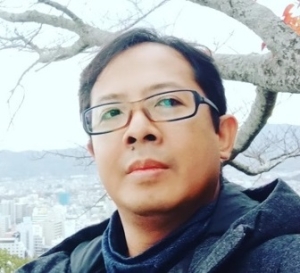
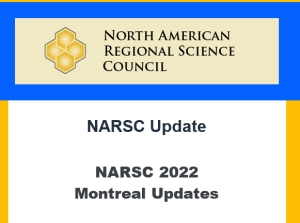

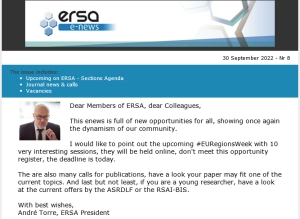

 Dear Members of ERSA, dear Colleagues,
Dear Members of ERSA, dear Colleagues,













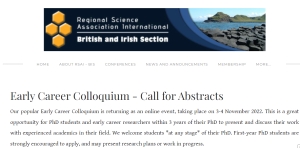
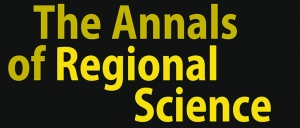
 The Annals of Regional Science.
The Annals of Regional Science. 